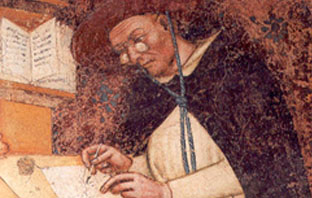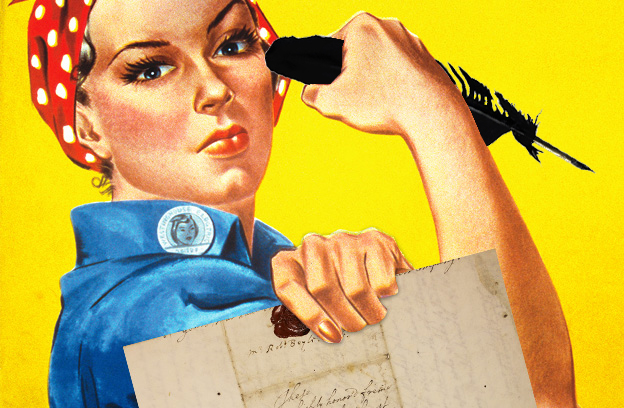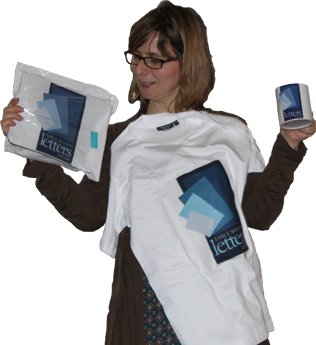Elizabeth Williamson
With only a few days left to apply for the two jobs currently available at Cultures of Knowledge, I wanted to provide a little more detail on the EMLO team and what it’s like to be a Digital Project Manager and a Projects Administrator for this fast-growing and exciting enterprise.
How would you summarise the role of the DPM?
It is a really wonderful post, very varied and stimulating! The position bridges different fields – project management, editorial, technical, scholarly, promotion – though we have a wide and very talented team of specialists, so my main job is coordinating their work to keep every aspect in service of the project as a whole. We have specialist systems developers and a skilled digital editor who, with my guidance, progress the substance of the technical and editorial agendas respectively.
What’s it like to work for Cultures of Knowledge?
It’s a fantastic team and we’re all really passionate about the project. In the History Faculty we have a project office where the two new recruits will be based, and an editorial office which houses our Digital Editor Miranda Lewis, visiting scholars, and our team of Digital Fellows. We work with some great developers in Oxford and internationally, plus a postdoc in Leiden and editorial collaborators all around the world. It’s important that the DPM provides a core presence for the team; that’s why I’m handing the role to a new person, as I’m moving to the USA for personal reasons.
How technical is your role?
I’d say that currently I do a lot of managing of the technical agenda and specifying of needs, but that doesn’t require specialist knowledge of the coding languages themselves as we have a Technical Strategist who advises on structural choices, and we also have the new post of Technical and Community Manager coming on board imminently. So I don’t need to know how MongoDB or node.js work, for example, but I do need a general knowledge of our systems, what they do, what their limits are, and to be able to assist the editor in determining what is needed in terms of development. It’s about translating the requirements of the scholars and editors to the technical team, and helping to ensure that work moves forward on time and on spec.
What do you find yourself doing most often?
As said, managing the technical agenda and specifying needs is central. There is also a large role in representing the project, online and offline, and promoting/explaining EMLO to the scholarly community. I love this part, and it will be expanding further. The post requires an understanding and overview of each aspect of EMLO and Cultures of Knowledge, in order to help steer the group individually and as a whole. It might be bouncing ideas for editorial workflows with our Digital Editor, communicating with potential collaborators explaining why they might want to put data on EMLO, outlining project milestones with the team, or drawing up feedback for a technical tool. There’s also a need for reporting to our funders, the Mellon Foundation, and strategizing to explore future options, including funding applications. But on the whole I’d say a large part of my role is anticipating and understanding needs, organising, and communicating.
How does CofK relate to EMLO?
EMLO (Early Modern Letters Online) is the union catalogue and digital platform that the research project Cultures of Knowledge created and runs. We work with many different contributors to gather, standardise, and centralise metadata on early modern letters, including curating it ourselves. Have a browse of this website and/or EMLO itself to find out more: emlo.bodleian.ox.ac.uk.
How does CofK relate to the COST Action network?
These are two separate projects, but they benefit each other. CofK is one voice in the wider COST network, and our Director and the project were also centrally involved in the proposal. We were also the local hosts and co-organisers for a recent multifaceted COST event, comprising a conference, set of meetings, and digital humanities training school. The network itself is made up of scholars, archivists, librarians, and technologists from over 30 countries, coming together over four years to collaborate on all aspects of rolling out truly international infrastructure to facilitate the reassembly of the epistolary material of the republic of letters.
How can I find out more about the COST Action?
Check out the website here, beautifully designed and constructed by Density Design at Politecnico di Milano.
What can you tell us about the COST-CofK administrative post?
This is a fantastic opportunity to be involved at ground level in both projects. It’s 0.6 FTE so would work well around other family or work commitments. Part of their time will be spent supporting the new Digital Project Manager at CofK with all sorts of administrative and financial tasks concerning EMLO, from helping run events, to helping process our team of Digital Fellows, to keeping detailed budget logs. The rest will be dedicated to the COST network; this is important work, and would require developing a good understanding of COST’s rules and requirements in order to communicate with Action members, advising them as needed on matters like reimbursement eligibility, setting up contracts and payments for activities such as website development and video production, and working with local event coordinators in the network. The ideal candidate will need a good head for figures, the ability to digest complex information, and an eye for detail. The scholarly work and actual activity of the network is well distributed amongst several key individuals, like Working Group Leaders and the Short Term Scientific Mission Coordinator, so you’ll be supporting – and be supported by – a highly engaged and skilled team.
Sounds great! How do I apply?
The deadline for both positions is midday on 8th April. Please ensure you have your application in by then! Further particulars and a link to the application form is here for the Project Manager, and here for the Projects Administrator.
Good luck, and Happy Easter!









